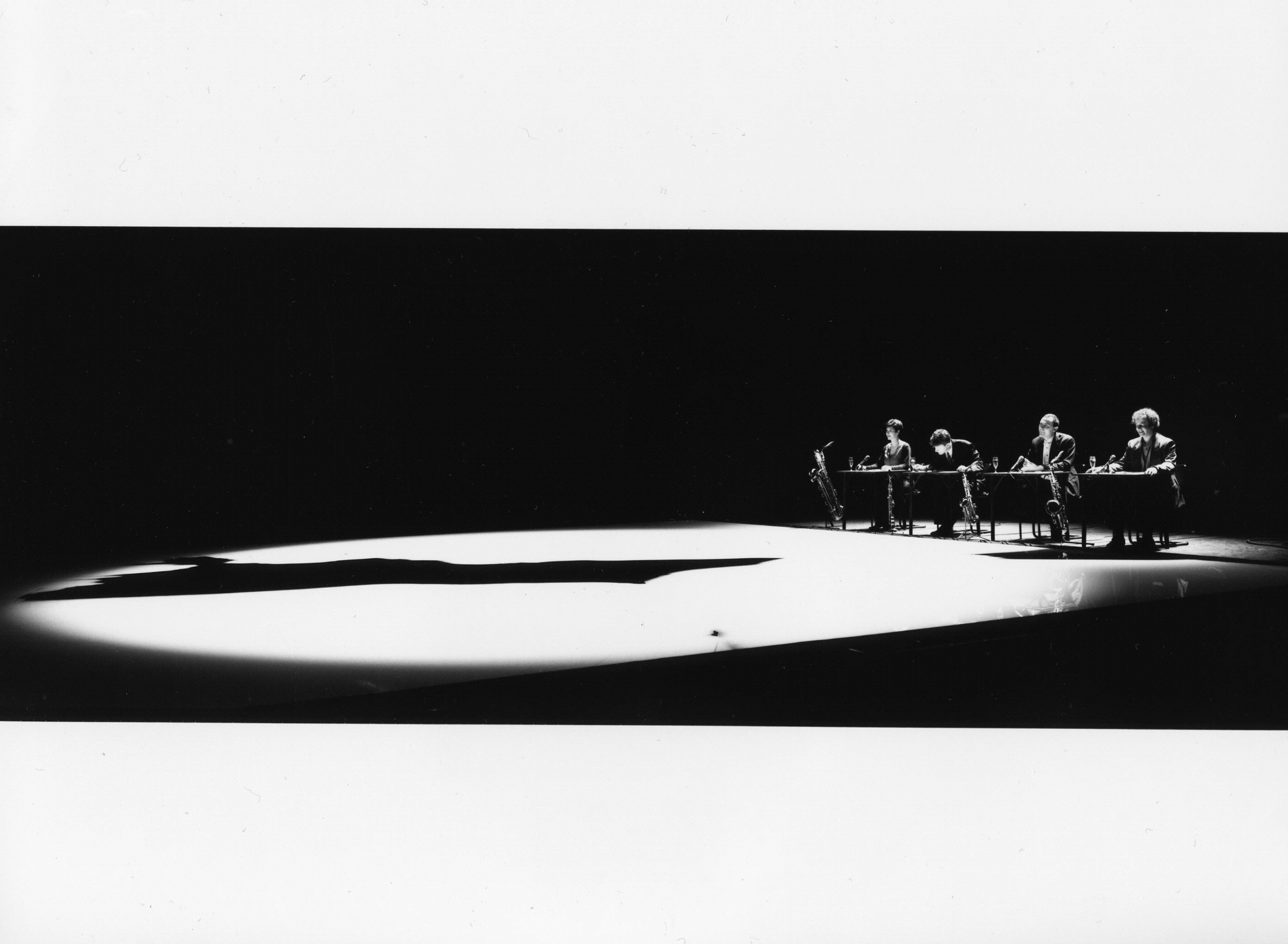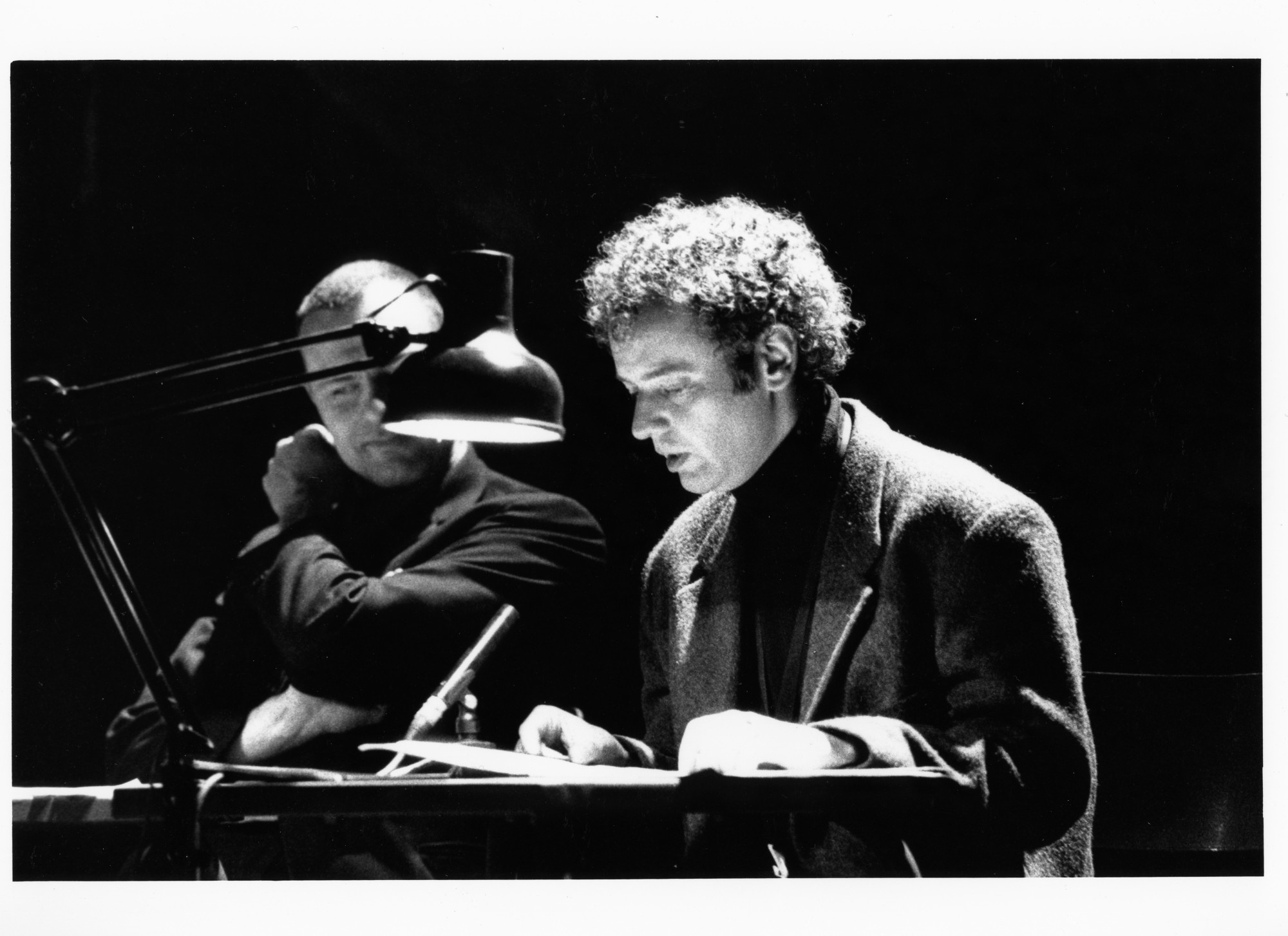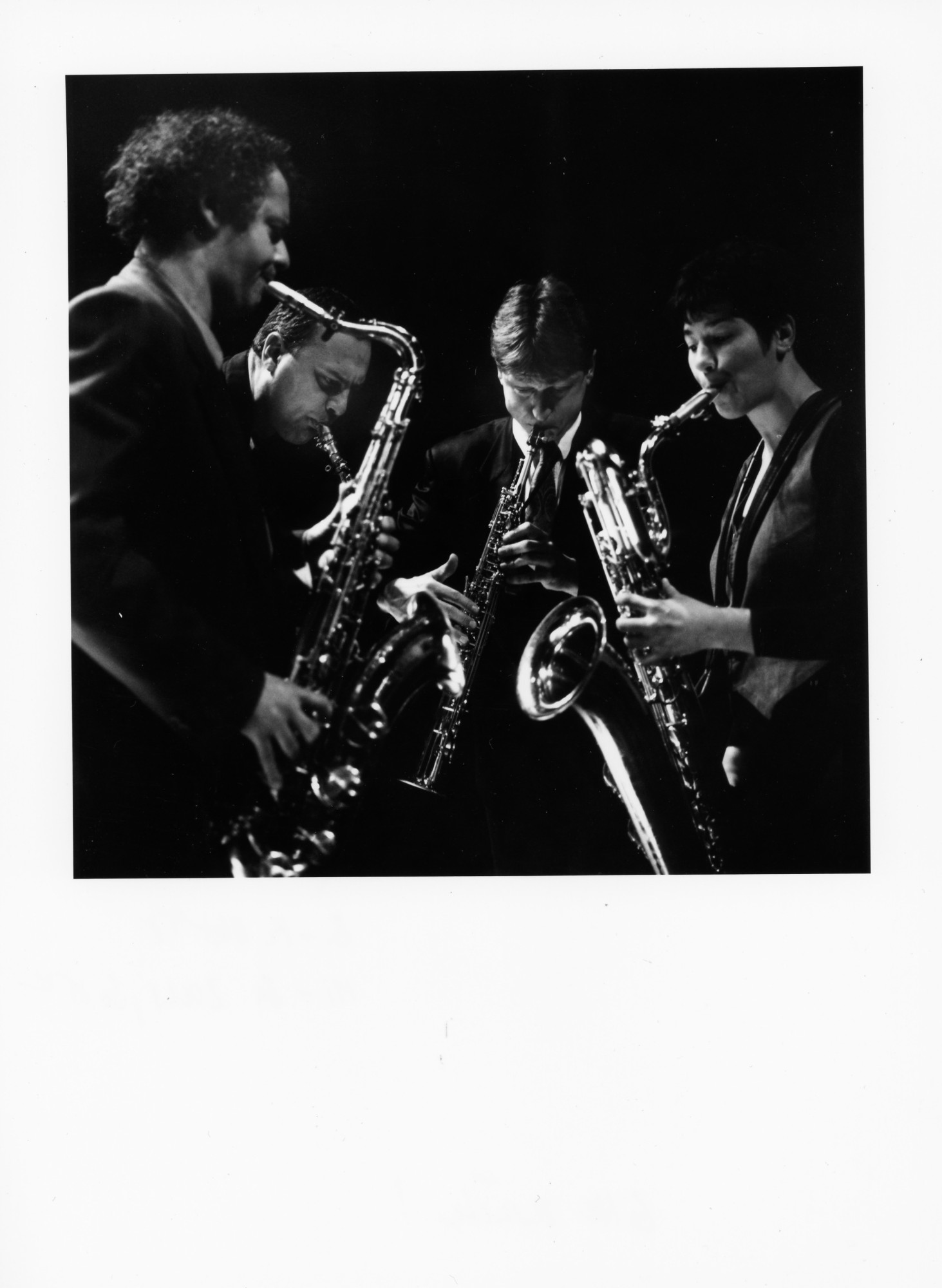Momentum
Sounds grow around and around a silently changing subject matter. Four musicians move between voice and instrument. An audience becomes witness to intimate exchanges of thoughts, a sound-check, a rehearsal situation, a concert … Leading motif is the phenomenon of ‘translation’, which feeds communication disorders both literally and metaphorically. The fascination with Japan sets the tone: silence conducts.
The concept of Momentum is a joint design by Eric Sleichim and visual artist Trudo Engels.
Momentum premiered at the Kaaitheater on 21 January 1994, and has since appeared on various stages in Belgium, the Netherlands, Switzerland, Norway and Hungary. In 1996, the performance travelled to Japan and Hong Kong.
Eric Sleichim: concept & direction, composition and arrangements
Trudo Engels: concept plastic work
Josse De Pauw: text
Guy Cassiers: coaching
BL!NDMAN [sax]
Martin Fredebeul: soprano saxophone
Eric Sleichim: alto saxophone
Luk Mishalle: tenor saxophone
Véronique Delmelle: baritone saxophone
Raymond Fromont: lighting design
Lieven De Meyere: lighting technique
Xavier Yerles: sound engineering
Veerle Vaes: production management
Momentum is a BL!NDMAN production, in co-production with Kaaitheater, Orfeo vzw, Motus vzw, with the support of Plateau vzw.



Programme
Eric Sleichim, Pierre Bartholomée, Johann Sebastian Bach, Janis Joplin: music
Junichiro Tanizaki, Josse De Pauw: text
Agenda
More about Momentum
During two trips to Japan, Eric Sleichim becomes fascinated by Eastern culture. Especially those facets that hinder communication with the Westerner fascinate him: a different sense of humour, different labelling rules, different facial expressions, … His fascination is reflected in the choice of texts. Japanese writer Junichiro Tanizaki, in his In Praise of Shadows, makes a comparison between Eastern and Western culture. Especially the different use and experience of sound and light in the intimate home atmosphere, get his attention. Tanizaki’s mystifying approach is balanced by Josse De Pauw’s text, which lovingly addresses the same theme in his relatable style. Sound and light: two elements that significantly colour daily life in Japan; two elements that occupy a crucial place in music and visual art.
That BL!NDMAN collaborates with a visual artist in Momentum comes as no surprise. Ever since their formation in 1988, BL!NDMAN has had an affinity with the visual arts. The company was founded by Eric Sleichim for the performance of his composition Five Movements for Beuys during the Festival The Bold Years at the Centre for Fine Arts. Eric Sleichim himself further collaborated with visual artist Royden Rabinowitch, and the composition he wrote for BL!NDMAN to close Documenta IX, was dedicated to Olivier Messiaen and Francis Bacon. The concept of Momentum is a joint design by Eric Sleichim and visual artist Trudo Engels. A preliminary study on this performance was shown in Lille in 1992. Together with director Guy Cassiers, they built further on that try-out. However, the relationship between the music and the installation remains the same: both are equal elements in a concert.
For Trudo Engels, making visual art is closely related to making music. In his paintings and installations, he always starts from schemes: mathematical systems, numerical structures and codes of all kinds. He consistently elaborates these schemes to create an abstracted story with its own logic that can no longer be coded. The final image stands on its own, but the working process leading up to it takes years. An initial idea is built up, polished and rethought. For Trudo Engels, working on an image is like working on a score.


